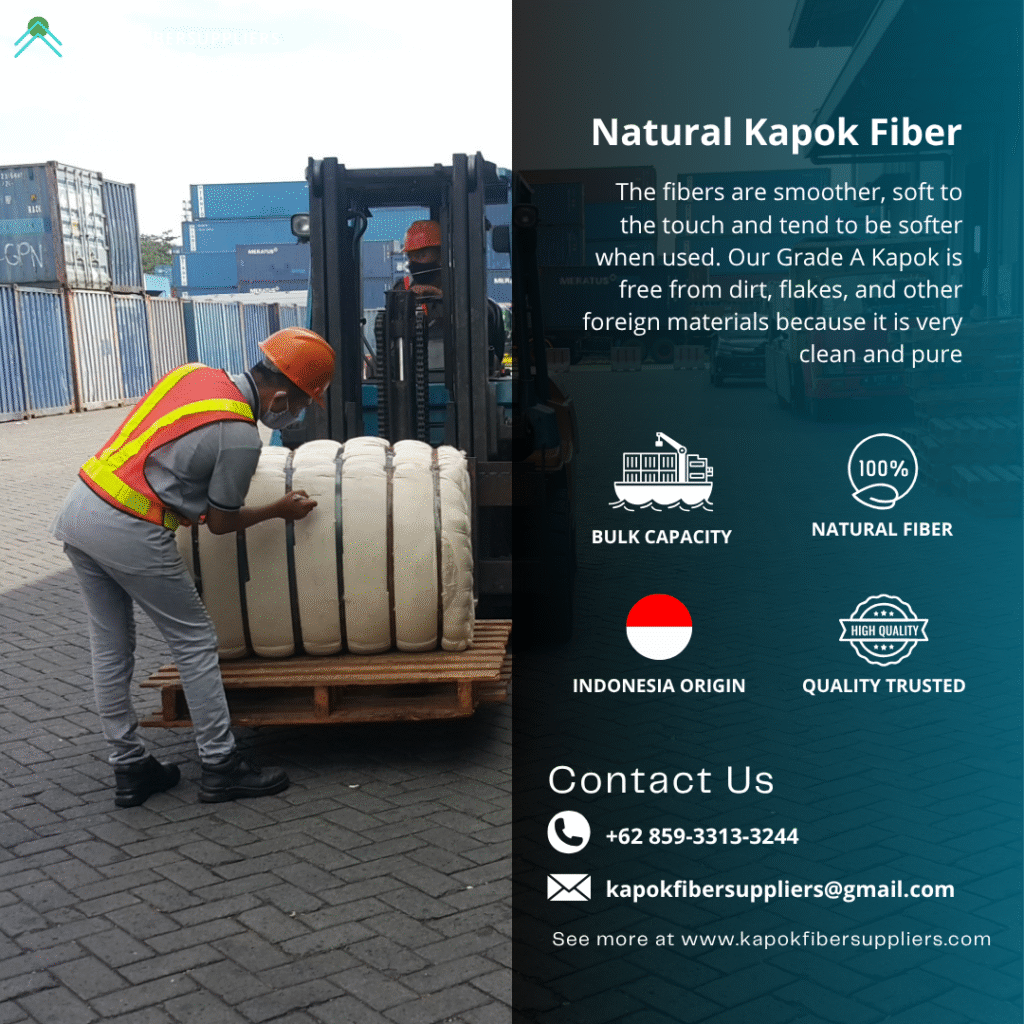
Introduction
Kapok fiber is one of nature’s most underrated treasures. As the world turns toward eco-friendly solutions, kapok fiber stands out as a sustainable, natural material with many environmental benefits. Indonesia, one of the world’s top producers of kapok, plays a key role in bringing this magical fiber to the global stage.
What Makes Kapok Fiber Unique
Kapok fiber is soft, silky, and naturally water-resistant. It is harvested from the seed pods of the kapok tree, without the need for chemicals or heavy machinery. Unlike synthetic fibers, kapok is 100% biodegradable and compostable. Its lightweight and hypoallergenic qualities make it ideal for pillows, mattresses, and even insulation.
Eco-Friendly Trend Creates Opportunity
More consumers today care about where their products come from and how they impact the planet. The rise in demand for green products especially in Europe, North America, and Asia—opens new doors for kapok fiber exports. As countries ban or limit the use of plastic and polyester, natural fibers like kapok become even more valuable in global markets.
Indonesia’s Natural Advantage
Indonesia has a strong foundation in the kapok industry. Regions like Java and Sumatra have vast kapok plantations and skilled farmers who know how to process the fiber efficiently. The country’s tropical climate is ideal for kapok growth. With good infrastructure and shipping access, Indonesian exporters can deliver high-quality kapok to international buyers at competitive prices.
Rising Global Demand
In countries like Japan and South Korea, kapok is used in organic bedding and sustainable home goods. In Europe, it is being adopted in furniture production, green building projects, and soundproofing materials. The U.S. market shows interest in baby-safe, allergy-friendly products, and kapok offers a natural solution. As awareness grows, kapok is also entering the fashion and packaging industries.
Certifications Increase Market Trust
To compete in global markets, certification is key. Labels such as GOTS (Global Organic Textile Standard) and OEKO-TEX boost consumer confidence and open access to premium markets. Indonesian exporters who invest in quality control and certifications can demand higher prices and build long-term partnerships.
Innovation Is the Future
Kapok fiber has many untapped uses. Researchers are exploring its role in life jackets, automotive interiors, and even biodegradable packaging. With innovation, Indonesia can lead the way in creating new products while promoting environmental responsibility.
Conclusion
Kapok fiber is more than just a plant-based material it is a symbol of sustainable living. Indonesia holds the key to unlocking its full potential in the global market. By maintaining quality, obtaining certifications, and investing in innovation, Indonesian businesses can turn kapok into a global green export success story.

